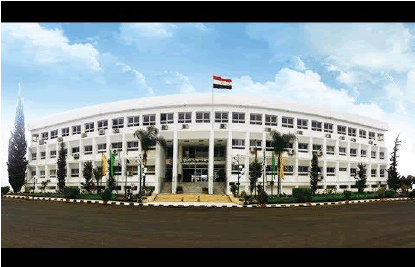Sulfonated carbon-based catalyst derived from orange peelâ as an efficient and recyclable heterogeneous catalyst for oleic acid esterification
Keywords: Carbon-based catalyst, Greenhouse, Toxic gases
Abstract
The future of oil-derived fuels, such as gasoline and diesel for use in the transportation and energy sectors, is unknown. The continuous dependence on the fossil fuel as a main source for energy, in which its combustion usually produces greenhouse and toxic gases (such as SO2, NOx and other pollutants), take part directly in causing the global warming and environmental pollution. In addition to declining crude oil supplies and political instability in the regions with large oil reserves, strict emission regulations are creating a need for alternative fuels. One of these alternative fuels is biodiesel. The main objective of this study is to develop efficient and environmentally benign heterogeneous catalysts for biodiesel production. For this purpose, a heterogeneous AC@SO3H catalyst was prepared by sulfonation of activated carbon by using sulfonic acid, and the prepared catalyst was tested for the esterification of oleic acid. Various techniques such as X‐ray diffraction, scanning and transmission electron microscopy, Brunauer–Emmett–Teller (BET) method, infrared spectroscopy, were employed for the characterization of the solid catalyst. Sulfonic acid group-loaded activated carbon was next explored as heterogeneous catalyst to produce biodiesel from oleic acid. Various reaction parameters, such as methanol/oleic acid molar ratio, catalyst dosage, reaction temperature and time were systematically investigated. The obtained SO3H-AC catalyst exhibited good catalytic performance in the esterification of oleic acid and also showed good reusability. The performance of SO3H-AC for biodiesel production from waste vegetable oils was additionally explored and high methyl ester yield achieved. Accordingly, SO3H-AC appears promising as an industrial catalyst for the one-step biodiesel production from low-grade feedstock’s containing high levels of FFAs.

Biography:
I am Muhammad Al-Saied Abdel Salam I work in the catalyst laboratory of the Egyptian Petroleum Research Institute. I am interested in preparing nanomaterials, using them as catalysts, and testing these materials in different reactions.
Speaker Publications:
1. Mohamed S. Abdel Salam; Mohamed A. Betiha; Seham A. Shaban;Ahmed M. Elsabagh; Reda M. Abd El-Aal; Fathy Y. El kady, Synthesis and Characterization of MCM-41-Supported Nano Zirconia Catalysts, Egyptian Journal of Petroleum Volume 24, Issue 1, March 2015, Pages 49–57.
2. El Saied, M., El Naggar, A. M., & Elhosiny, F. I. (2019). A comprehensive investigation on biomass solid waste conversion to a novel catalyst for hydrothermal production of bio-fuel feedstock. Journal of Cleaner Production, 218, 157-166.
3. Ahmed O. Abo El Naga, Mohamed El Saied, Seham A. Shaban, Fathy Y. El Kady, Fast removal of diclofenac sodium from aqueous solution using sugar cane bagassederived activated carbon, Journal of Molecular Liquids, Available online 23 April 2019.
4. Mohsen M.Mostafa, Mohamed El saied, Asmaa S.Morshedy, Novel Calcium Carbonate-titania nanocomposites for enhanced sun light photo catalytic desulfurization process , J Environ Manage, 250, 109462 (2019).
22nd International Conference on Advanced Energy Materials and Research; Webinar- July 15-16, 2020.
Abstract Citation:
Mohamed El Saied, Sulfonated carbon-based catalyst derived from orange peel as an efficient and recyclable heterogeneous catalyst for oleic acid esterification, Advanced Energy Materials 2020, 22nd International Conference on Advanced Energy Materials and Research; Webinar- July 15-16, 2020.
Share This Article
Recommended Journals
Open Access Journals
Article Usage
- Total views: 1920
- [From(publication date): 0-2020 - Apr 18, 2025]
- Breakdown by view type
- HTML page views: 1206
- PDF downloads: 714
